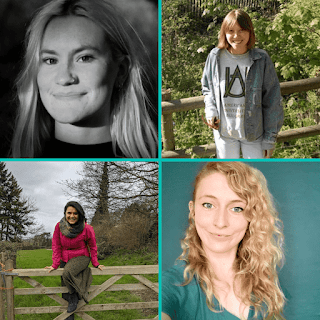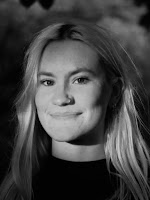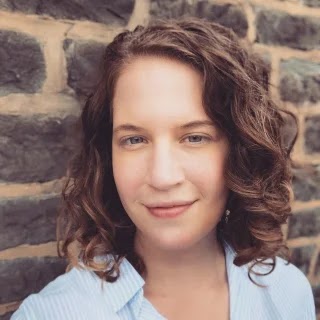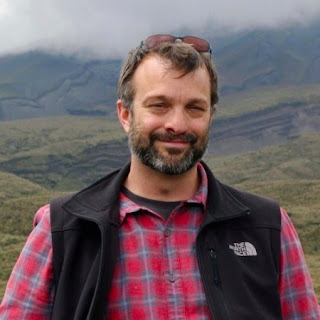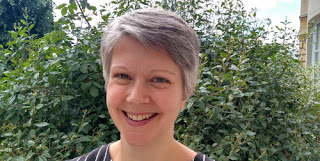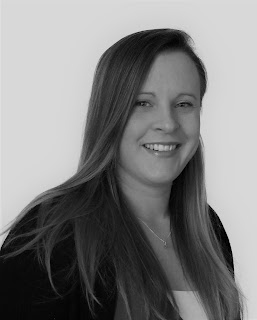Last year, we had the pleasure of working with six excellent Master’s and PhD students in the run up to the United Nations Climate Change Conference COP26. They impressed us with the creativity in their applications and we recruited them as Cabot Communications Assistants – an exciting opportunity that doesn’t come up very often within the Institute to gain experience in communications, and work with the Cabot team. Covering COP26 themes, the ecological emergency and #CabotNext10, which celebrated the 10 year anniversary of the Cabot Institute and looked ahead to the next 10 years, our comms assistants designed and implemented campaigns for a variety of different audiences, drawing upon their own research as well as that of experts across the University.
With COP27 coming up later this year, these issues are still very much on the minds of press, the public and environmental professionals across the world. Keep reading to learn more about the work that some of our Cabot Communications Assistants created in response to the key messages of COP26 and the UN biodiversity conference COP15 and their reflections on their experience.
Dora Young – Climate Emergency and Mock COP26
I am undertaking my Master’s by Research (MScR) with the Cabot Institute in the hopes of contributing to a more equitable knowledge politics around environmental justice issues in Bristol. I aim for my work within the City Futures theme to enhance the inclusivity of urban ecological management strategies (specifically, addressing the intersections of action to restore healthy pollinator populations, improve the quality and accessibility of green spaces, and ensure food security in the city’s most deprived areas).
Dora’s reflections
I was pleased to have produced a 14 or so week long Twitter campaign, with weekly tweets to highlight crucial climate research being done by Cabot members, ahead of COP26. I was also very happy to be able to write a blog about our fantastic experience facilitating the Mock COP26, which involved 60 school students from Bristol and was a thoroughly enjoyable and inspiring day.
Lucy Morris – Clean transport, clean energy and the Mock COP26
I’m currently studying for a Master’s by Research in Environmental Themes, Sciences and Wildlife Filmmaking. I’m interested in the spectrum of framing strategies employed in wildlife films and how these shape our relationship with the natural world and in particular, non-human animals. I believe that film and other digital media, with their enormous affective power, are immensely important in confronting anthropogenic environmental degradation and demonstrating the intrinsic value of all species and natural spaces.
Lucy’s reflections
I worked on two projects throughout my time as a comms assistant. The first was a Twitter campaign promoting the work of Cabot researchers on clean transport in the run up to COP26. I interviewed 4 experts and produced videos of some of these interviews advertising the blog that would summarise them . I created a week-long Twitter campaign counting down the days to the blog release with facts about transport, links to more information and tagged amplifiers. I wrote up a blog that was released on the last day of the campaign that was read by more than 220 people. In the process, I learnt many new skills, worked as part of a great team and my own interest in the topic of transport only grew. I also worked to produce a creative output to summarise the process and events of the mock COP26 for sixth form students run by Cabot and Praxis research. Working with Jack Nicholls, I conducted qualitative research of all the notes made at the mock climate negotiations, drawing out themes of the day and learning outcomes. I produced a brief for illustrator, Ellie Shipman, who created amazing illustrations of the day. I also produced my own sketch illustrations as part of this brief, which were used in the final product – a web page all about Bristol’s mock COP.
Hilary McCarthy – Ecological Emergency
Hilary’s reflections
During my internship with Cabot, I worked on a campaign titled the ‘Ecological Emergency’, which was scheduled to run in October alongside COP15, a global convention on biodiversity. As part of the campaign I produced, I spoke with a number of academics in relevant research fields about their perspective on ecological decline and its drivers and projections. The campaign involved amplifying the academics statements, through a combination of blogs and visual social media posts. The visual content overlaid academic statements on top of staff and student photography and videography, of relevant wildlife and nature.
Olivia Reddy – #CabotNext10
Currently, I’m a few months into my PhD in Civil Engineering here at Bristol. My focus is on the infrastructure and management of sanitation systems in Ethiopia and Uganda, specifically looking at their resilience to climate change and the greenhouse gases they emit. I’m interested in creating sustainable, achievable change, and exploring the different ways in which to do so.
Olivia’s reflections
I think it’s really important that the work that Cabot does is understood and valued by a wider audience. That’s why I have taken the approach I have with #CabotNext10, to delve into why this research is important and what it means. Similarly, it’s important to see who Cabot is, and why the staff do what they do – which is why I wanted to re/introduce the core Cabot team. Science communication is a huge part of research which often gets overlooked, and I wanted to make sure those working here got highlighted. Read the #CabotNext10 blogs.
Also check out blogs by Comms Assistant Lois Barton on Urban Pollinating and World Water Day.
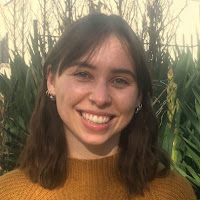 |
| Joanne Norris |
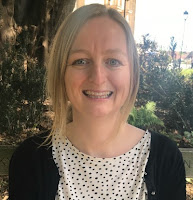 |
| Adele Hulin |

